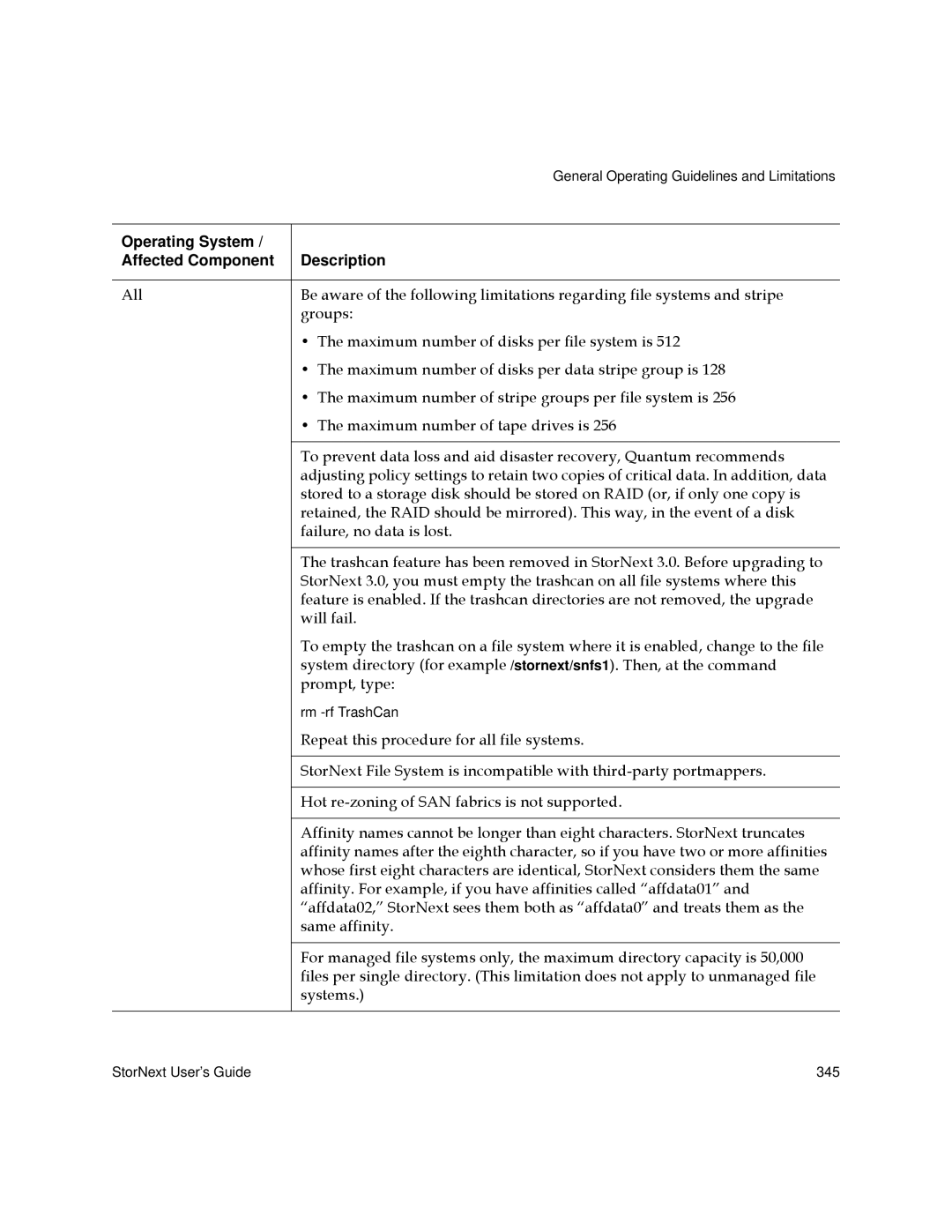| General Operating Guidelines and Limitations |
|
|
Operating System / |
|
Affected Component | Description |
|
|
All | Be aware of the following limitations regarding file systems and stripe |
| groups: |
| • The maximum number of disks per file system is 512 |
| • The maximum number of disks per data stripe group is 128 |
| • The maximum number of stripe groups per file system is 256 |
| • The maximum number of tape drives is 256 |
|
|
| To prevent data loss and aid disaster recovery, Quantum recommends |
| adjusting policy settings to retain two copies of critical data. In addition, data |
| stored to a storage disk should be stored on RAID (or, if only one copy is |
| retained, the RAID should be mirrored). This way, in the event of a disk |
| failure, no data is lost. |
|
|
| The trashcan feature has been removed in StorNext 3.0. Before upgrading to |
| StorNext 3.0, you must empty the trashcan on all file systems where this |
| feature is enabled. If the trashcan directories are not removed, the upgrade |
| will fail. |
| To empty the trashcan on a file system where it is enabled, change to the file |
| system directory (for example /stornext/snfs1). Then, at the command |
| prompt, type: |
| rm |
| Repeat this procedure for all file systems. |
|
|
| StorNext File System is incompatible with |
|
|
| Hot |
|
|
| Affinity names cannot be longer than eight characters. StorNext truncates |
| affinity names after the eighth character, so if you have two or more affinities |
| whose first eight characters are identical, StorNext considers them the same |
| affinity. For example, if you have affinities called “affdata01” and |
| “affdata02,” StorNext sees them both as “affdata0” and treats them as the |
| same affinity. |
|
|
| For managed file systems only, the maximum directory capacity is 50,000 |
| files per single directory. (This limitation does not apply to unmanaged file |
| systems.) |
|
|
StorNext User’s Guide | 345 |
